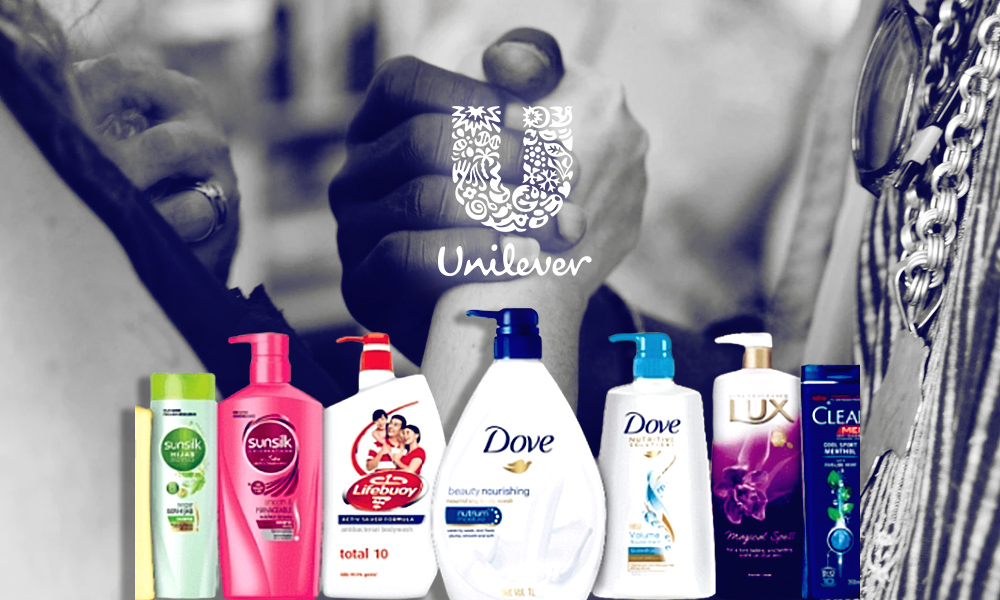
Image Credits: Unsplash
'Champion Inclusion': Unilever To Drop Word 'Normal' From Packaging, Ads Of Beauty Products
Writer: Palak Agrawal
Palak a journalism graduate believes in simplifying the complicated and writing about the extraordinary lives of ordinary people. She calls herself a " hodophile" or in layman words- a person who loves to travel.
Others/World, 9 March 2021 10:44 AM GMT
Editor : Prateek Gautam |
A free soul who believes that journalism, apart from politics, should stand for social cause and the environment.
Creatives : Rajath
A free spirit who find meaning in life with the virtue of creativity and doing job par its excellence, animal lover and traveller by heart.
The company in its effort to promote the idea of inclusivity, will also not digitally alter a person's body shape, size or skin colour in its advertisements and will rather portray people from diverse communities.
Unilever, the leading consumer goods giant, announced that it would drop the word 'normal' from the packaging and advertising of all its beauty and personal care products. Additionally, the company in its effort to promote the idea of inclusivity, will not digitally alter a person's body shape, size or skin colour in its advertisements and will rather portray people from diverse communities.
Announcing the launch of its 'Positive Beauty' vision on Tuesday, March 9, the company said that all the beauty brands including Dove, Lifebuoy, Axe, and Sunsilk, would pave way for an equitable, inclusive as well as sustainable era of beauty.
In a statement, Unilever stated that the decision to eliminate the word 'normal' can be seen as one of the steps to "challenge narrow beauty ideals" and to bring about a substantial shift in the way people define the term 'beauty'.
"Using Unilever's world-class innovation and technology, Positive Beauty will also help to drive a transformation in how our products are designed and formulated so that they do more good for both people and the planet, deliver a superior product experience, and tap into consumer trends," the statement read.
Based On A Global Study
Unilever conducted a survey across nine countries to understand and assess people's experiences and expectations of the beauty industry and accordingly to devise strategies to work towards building a 'more inclusive' beauty culture. The survey covered at least 10,000 respondents from countries including Brazil, China, India, Indonesia, Nigeria, Saudi Arabia, South Africa, UK and the United States.
The survey revealed that more than half of the people —around 56 per cent had the notion that the beauty and personal care industry can make people feel excluded.
Nearly 74 per cent of people wanted to see the beauty and personal care industry focusing more on making 'feel better' than simply 'looking better.' At least half the respondents (52 per cent) said that they take into consideration a brand's stance on societal issues before purchasing the products.
"Seven in ten people agree that using the word 'normal' on product packaging and advertising has a negative impact. For younger people – those aged 18-35 – this rises to eight in ten," the statement read.
Impacting One Billion Lives
"With one billion people using our beauty and personal care products every day, and even more seeing our advertising, our brands have the power to make a real difference to people's lives. As part of this, we are committed to tackling harmful norms and stereotypes and shaping a broader, far more inclusive definition of beauty," said Sunny Jain, President Beauty & Personal Care.
"We know that removing 'normal' from our products and packaging will not fix the problem alone, but it is an important step forward. It's just one of a number of actions we are taking as part of our Positive Beauty vision, which aims not only to do less harm but more good for both people and the planet," he added.
With the steps taken, Unilever aims to do more good and not just less harm, for the people and the planet. By building an inclusive portfolio of products, the brand wants to take the lead in ending discrimination. It said that the decision to do away with digitally modifying advertisements would help in 'unstereotyping ads and advocate to challenge the status quo.
It also plans to improve health and wellbeing through educational initiatives in handwashing and oral hygiene as well as expanding focus into new areas, including physical health and mental wellbeing.
Building A Sustainable Brand
Through a variety of measures such as tree planting and landscape restoration, Unilever aims to protect and regenerate 1.5 million hectares of land, forest and oceans by 2030. Additionally, it claimed to play a significant role in supporting a blanket ban on animal testing for cosmetics by 2023.
The company also plans to reduce its carbon emissions to zero by 2039. It announced an investment of $1.1 billion in climate-friendly initiatives over the next decade. To make consumers aware of their carbon footprint, the company shared that each of its 70,000 products would show on their labels how much greenhouse gas was emitted in the process of manufacturing and shipping them to consumers.
"While the world is dealing with the devastating effects of the COVID-19 pandemic, and grappling with serious issues of inequality, we can't let ourselves forget that the climate crisis is still a threat to all of us," said Unilever Chief Executive Officer Alan Jope, reported Bloomberg Green.
Also Read: Can Waste Be Converted To Furniture? This Delhi-Based Entrepreneur Is Making It Possible
 All section
All section














